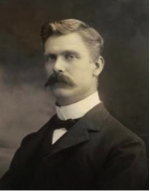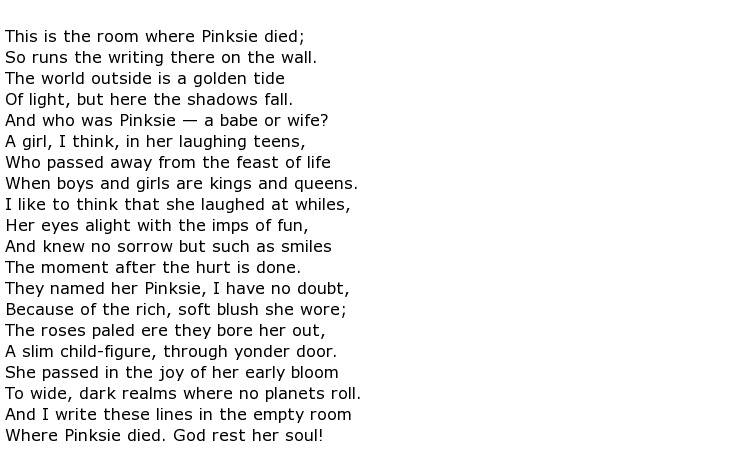 Roderic Quinn was an Australian poet and newspaper editor who modestly described himself as “a pleasant minor poet”. He was known for his genuine courtesy and deference to his fellow man. Fellow writer Norman Lindsay said of him:
Roderic Quinn was an Australian poet and newspaper editor who modestly described himself as “a pleasant minor poet”. He was known for his genuine courtesy and deference to his fellow man. Fellow writer Norman Lindsay said of him:

He never married throughout his long life and other notable members of his family were brother Patrick Quinn, a politician, and niece Marjorie Quinn who also became a writer.
He was born in Sydney on the 26th November 1867, his parents being Irish immigrants who produced nine children. They sent him to be educated at Catholic schools such as St Francis de Sales, Haymarket and then the Maris Brothers’ school. He showed no apparent ambition to go on to any kind of further education although he did dabble in the study of law for a while before moving into teaching at Milbrulong Provisional Public School, near Wagga Wagga. After only six months at this profession he moved back to Sydney where he took on the editorship of the North Sydney News.
Quinn had ambitions to be a poet and, from the 1890s onwards, he found an outlet for his work in The Bulletin. His first piece of work was called A Dreamer and this appeared in 1894. He was certainly prolific with at least 1200 pieces of work attributable to him and he became known as one of his country’s leading poets. Although poetry was his passion he did try his hand at writing a novel in 1897 but Mostyn Stayne brought him only limited success. Poetry became his sole source of income, so much so that he would turn up at the Bulletin each week hoping to sell his work to pay his rent. They would usually buy his work whether or not it went on to be published.
Additionally though he had collections of poetry published in the early decades of the twentieth century. Volumes included The Circling Hearths, in 1901, A Southern Garland (1904) and Poems in 1920. He was also able to supplement his income by writing short stories for publication in the Bulletin. He frequented literary associations like Sydney’s Dawn and Dusk Club, a group that included the likes of Victor Daley and Henry Lawson. Quinn was one of the organisation’s least boisterous members, happy to attend whenever he felt like it. As a lifelong bachelor he will have seen organisations such as this as a worthy source of social as well as literary contact.
Many of Quinn’s poems were quite long but here is a shorter piece. It is a poignant observation of what is left behind after someone has died. It is called An Empty Room:

As a writer he was very well thought of in all quarters, especially throughout the Catholic community in Sydney. A reviewer in The Western Mail described him as a poetic genius and went on to say that he

He was able to support himself on the proceeds of his poetry but, in his later years, he relied on a pension of £1 per week provided by the Commonwealth Literary Fund and supplemented by the State government.
Roderic Quinn died on the 15th August 1949 in the Sacred Heart Hospice Darlinghurst, at the age of 81.

